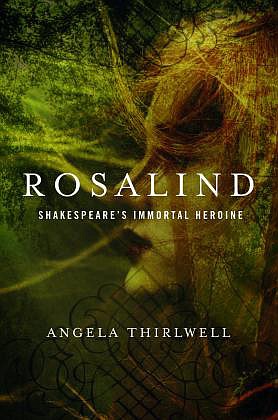W. H. Auden called her "a triumph of civilization." Harold Bloom insists that if she "cannot please us, then no one in Shakespeare or elsewhere in literature ever will." In a 2010 review of "As You Like It," yours truly called her "Shakespeare's greatest heroine."
None of us would get any argument from Angela Thirlwell, whose "Rosalind: Shakespeare's Immortal Heroine" is an enthusiastic homage to a character with more lines-one-quarter of "As You Like It"-than any other female character in Shakespeare.
Disguising herself as a man, Rosalind isn't just a gender-bender. As Thirlwell rightly notes, "she's more of a gender-buster." "Through Rosalind," Thirlwell writes, "Shakespeare explores the idea that none of us is purely female or purely male." Instead, she demolishes such categories, replacing them with true gender fluidity.
In early chapters, Thirlwell chronicles Rosalind's predecessors and sisters. Precursors go back to Athena; the many sisters include Viola and Beatrice; Julia and Juliet; Portia, Rosaline and Imogen.
There's far too much Shakespeare plot summary, here, as Thirlwell covers ground that's also been recently explored-more effectively and persuasively-in Tina Packer's "Women of Will," an uneven but entertaining chronicle of Shakespeare's changing attitude toward women, as reflected in his plays.
But "Rosalind" contains gold as well as dross, including a comparison between Juliet and Rosalind as stage directors; a provocative suggestion that Hamlet is Rosalind's lost brother; and an insightful contrast between Rosalind and cross-dressing Viola, who remains distinctly feminine while Rosalind herself transcends gender.
Structuring her book like a play-she even puckishly includes a program at the back-Thirlwell centers her book on two long chapters about Rosalind, sandwiching an intriguing intermission sketching the similarities between Rosalind and Elizabeth I. Ensuing chapters profile Rosalind's intimate relationship with cousin Celia and the man with whom she falls in love: Orlando.
Thirlwell's readings of Rosalind and her play don't break new ground and tend to be repetitive. Blinded by Rosalind's light, they also miss or underplay key issues; chief among them is the fascinating, irresoluble debate regarding when Orlando catches on that "Ganymede" is his beloved, in disguise.
Ganymede tells Orlando to make love to "him" as though "he" were Rosalind; their ensuing encounters allow the disguised Rosalind the freedom to school her intended in what a mature, rational love might be like.
Imagining that Orlando is eventually in on the game, as many productions do, underscores James Shapiro's observation, in his wonderful book "1599: A Year in the Life of William Shakespeare": The jousting between these two must become reciprocal if it hopes to embody the mutuality Rosalind espouses.
Conversely, Thirlwell tends to present Orlando as a dim-witted clod. Worse, she speaks of Orlando's nurturing love for an elder servant as proof that he's in touch with his "feminine side." Doing so recreates the same gender essentialism, in which certain traits are supposedly masculine or feminine, that Rosalind obliterates.
What's best in these discussions is Thirlwell's anecdotes, supplemented by numerous interviews, involving actors who've played Rosalind during the past half century. It's telling, for example, to hear from Adrian Lester, Rosalind in an all-male 1991 production in which he spent early rehearsals "trying to play a woman."
"It was the wrong thing to do," Lester admits. "I spent the first couple of weeks trying to play a generalized sense of womanhood where gender is a major component of character, when I should have been thinking only about playing Rosalind. She is so much more than her gender or her sexuality. Once I realized that I think I found the way to unlock her personality."
Can Rosalind help us unlock ours and escape the tyranny of gender?
In a final, wide-ranging chapter, Thirlwell showcases some of the many androgynous women in fiction who followed Rosalind; not one of them reaches as far or is nearly as radical. That's Shakespeare: Still way ahead of his time, more than 400 years later

